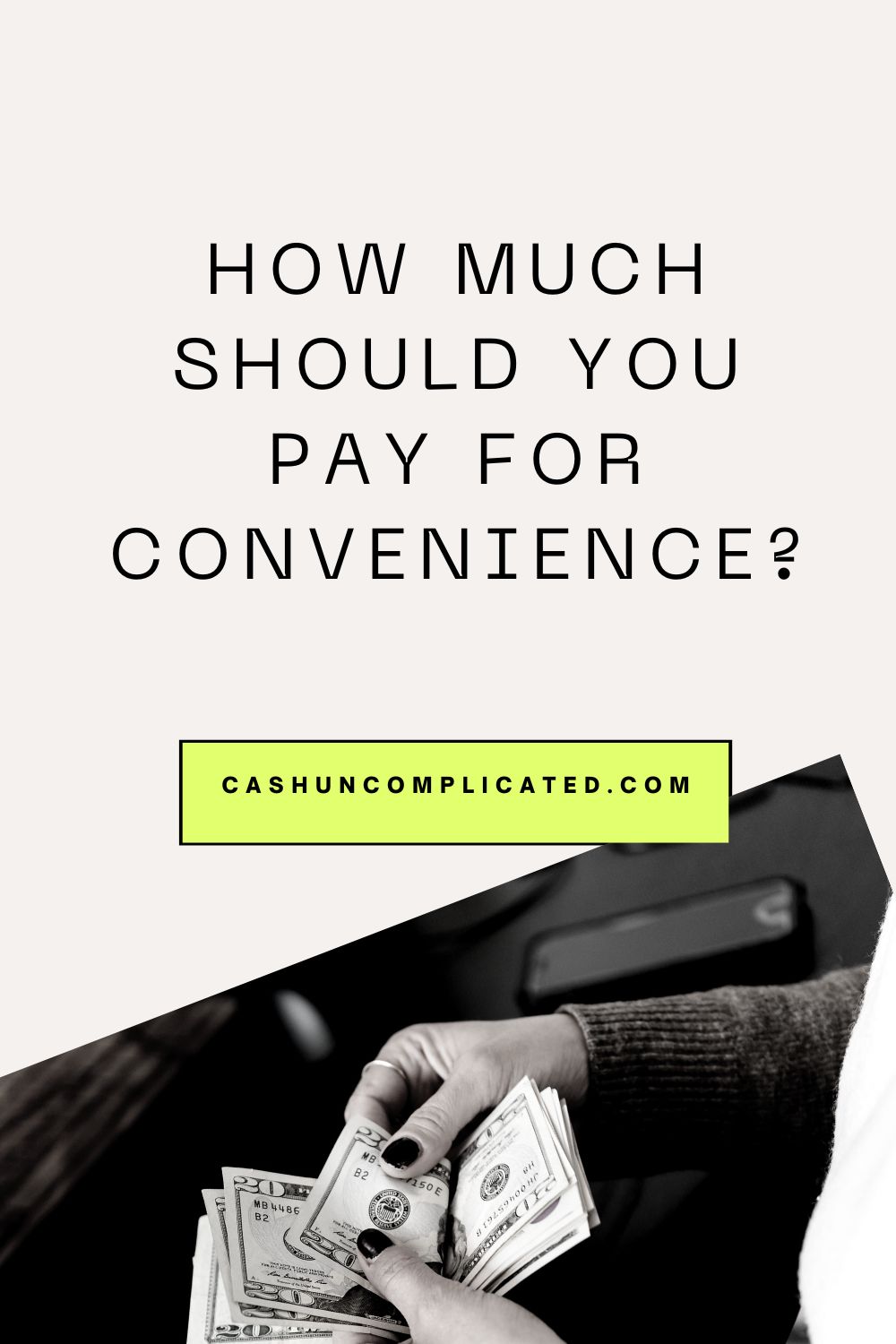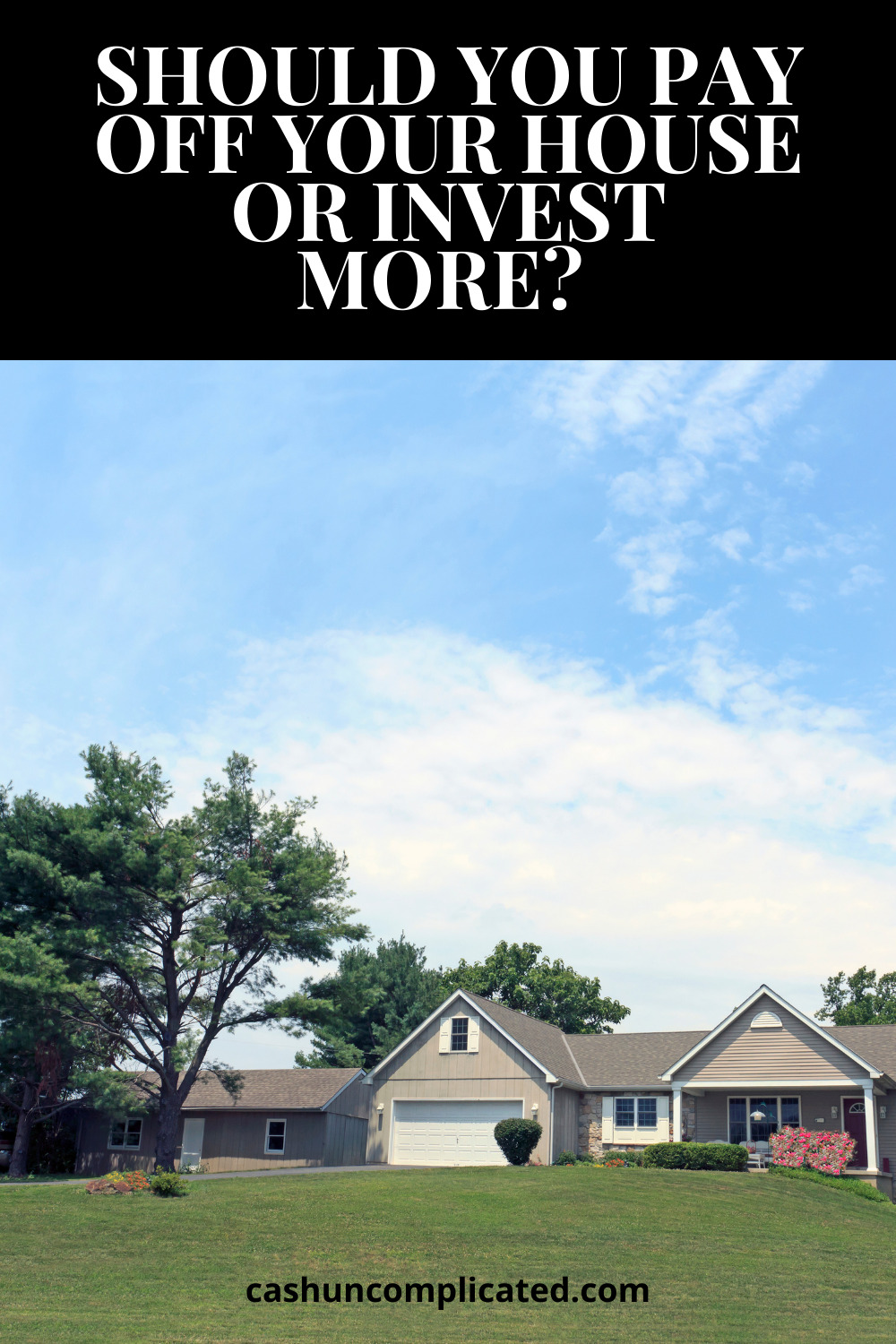In certain situations, I’m willing to pay for convenience. It wasn’t always like this though. I used to be the type of person that would trade my time to save money. It was probably the right thing to do at the time since I didn’t have any money.
My Backstory on Convenience
For a period of time, when I would fly somewhere and couldn’t get a ride to the airport, I would park my car about two to three miles from the airport. Then I’d take my bag out of the trunk, and walk to the airport. I’d walk through the area with businesses and restaurants. Then I’d walk over a bridge, weave through airport construction, then finally to my terminal.
Uber and Lyft weren’t around then (or at least in their early stages) and I wanted to save on cab fare. So my solution was to hoof it and save some money. Even if it meant arriving at the airport a little sweaty.
When I got back from my trip I’d usually do the airport walk in reverse. Sometimes splurging for a cab if I was tired or it was late. I did this for at least a few years and I’d estimate it saved me at least a few hundred dollars, which was nothing to sneeze at during that time.
The Last Few Years
Over the last few years, I’ve changed my tune on paying for convenience. I’m a lot more inclined to pay for convenience if it meets certain criteria. Of course I’m still not to the level of paying for takeout 10 times per week. But I have increased my willingness to spend on convenience.
How Much Should You Pay for Convenience?
These questions will help you decide how much, if anything, you should pay for convenience. Keep in mind that your answers might fluctuate. A lot depends on the season, how busy you are at the time, family considerations, and much more.
Number 1: How Convenient Is It?
Naturally, the first question that should be answered is how convenient is it? Is it incredibly convenient where it will save you a ton of time and hassle? Or is it just a little convenient where it might make your life a little better at the time, but nothing that moves the needle.
I’ll give an example. Two weeks ago I arrived at the airport in Atlanta at 5:25 AM. My flight took off at 6:25 so I thought I’d be fine getting there an hour early. As soon as I walked through the glass doors, I knew I had miscalculated.
I’ve never missed a flight before but this time I thought there was a really good chance of it. The security lines were nearly out the door and the place was a zoo. My heart started racing as I feared missing my flight. Then having to find a new one, and dealing with hours of standby.
As I moved slowly through the security line, I got on my phone and signed up for TSA-Pre. I was more than willing to pay for the costs of this convenience because it means I’ll have shorter lines, won’t have to get to the airport as early, and in a situation where the airport is packed will have a better chance of making it to my flight. Well worth it.
On the other side of it, I am also the type of person who makes my lunch everyday and brings it to work. It’s really not that more convenient to buy my lunch out, so I choose to bring it. It’s a little inconvenient to make it before work but not enough to where I’d order out on a regular basis. So in this case, it’s not convenient enough to pay for.
Related: Can Packing Your Lunch Make You a Millionaire?
Number 2: What’s the Amount of Time Saved?
How much time will paying for this convenience give you and/or your family? For example: if it normally takes you two hours to cut the grass, mow the edges, rake the leaves, and clean up the yard. That’s two hours per week you can save by hiring the job to a gardener. That’s a significant amount of time.
If you look at it over the course over a 52 week year, that’s over 100 hours saved by paying for it. If you can afford it and don’t want to spend time cutting the grass, that is a lot of time saved over a year.
Number 3: Are There More Cost-Effective Options?
Let’s stay with the example from above with the gardener. We will assume that you want to hire a gardener because it saves so much time. That’s not a free-for-all to hire the absolute most expensive person in town.
Interview a few different gardeners. Get a baseline for the quality of their work and prices. If there are two or three different gardeners who provide about the same quality, go with the bid that works for you. If gardener A charges $200 per month, B charges $225 per month, and C charges $450 per month and all provide similar quality, then it would make sense to go with option A or B.
They are both reasonably priced, and priced close together. While the third gardener is priced well above, while offering similar quality. Look to save time, but also look for value and price
Number 4: How Often Am I Paying For This Convenience?
There’s a big difference between a service you are paying for weekly/monthly versus a one-time fee. For example, if you decide to go to a sporting event once a season and pay for parking instead of walking a mile to and from your car. That’s a one-time fee, or an infrequently paid fee.
That’s versus the monthly amount you’re paying to a gardener to take care of your lawn and yard, which is a recurring cost. Although it still pains me to pay for parking, forking over $40 to get a good spot isn’t going to ruin me financially. Whereas paying $200 more than I need to every month for a recurring fee is a lot more impactful.
Number 5: Highest and Best Use of Time
Highest and best use of time is a concept I write about a lot in my blog and book Cash Uncomplicated. The basic concept is we often have the ability to make a lot more doing something we’re good at, or a job, than the new task at hand.
For example, an entrepreneur who values their time at $200 per hour would be better served hiring out any job that costs less than $200 per hour. If trimming all the hedges around her house is a $30 per hour task, then she should hire it out to someone else.
That’s a net positive of $170 per hour. If she chose to do the task herself, she’d only be paying herself $30 per hour. Which is well under the amount she wants to make.
Conclusion
How much you should pay for convenience is one hundred percent up to you and your family. It depends on a number of factors like the ones mentioned above. Highest and best use of time, how you’re paying for the convenience, and amount of time saved are just some of the considerations.
How much are you willing to pay for convenience?











